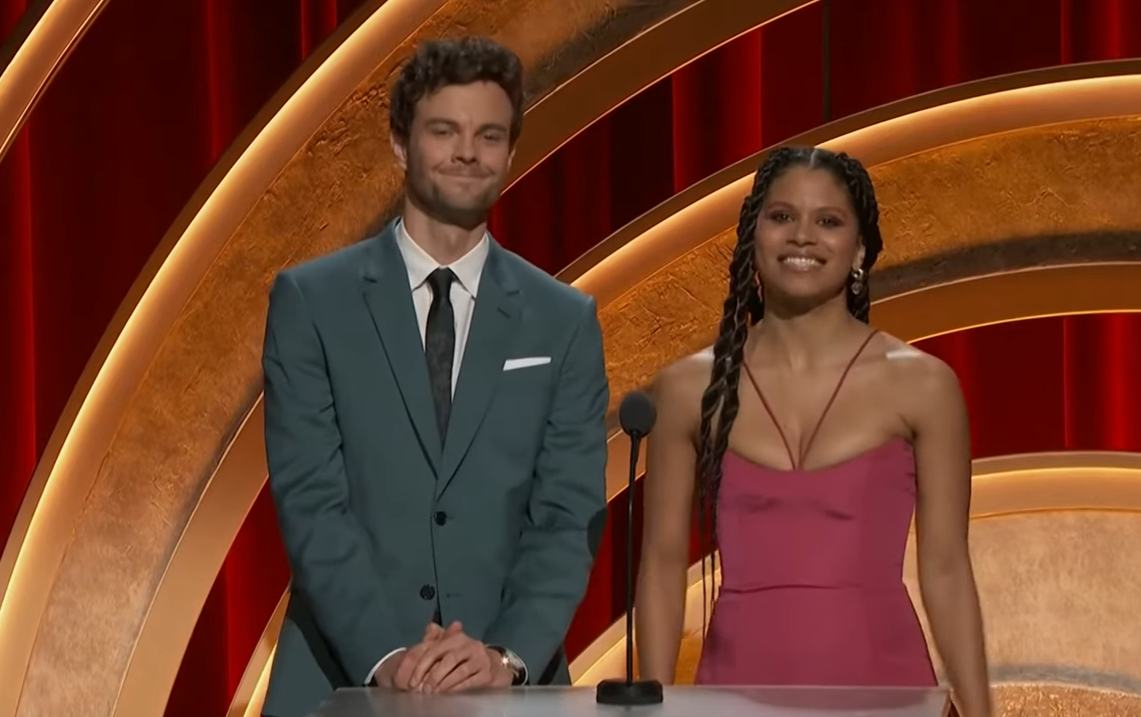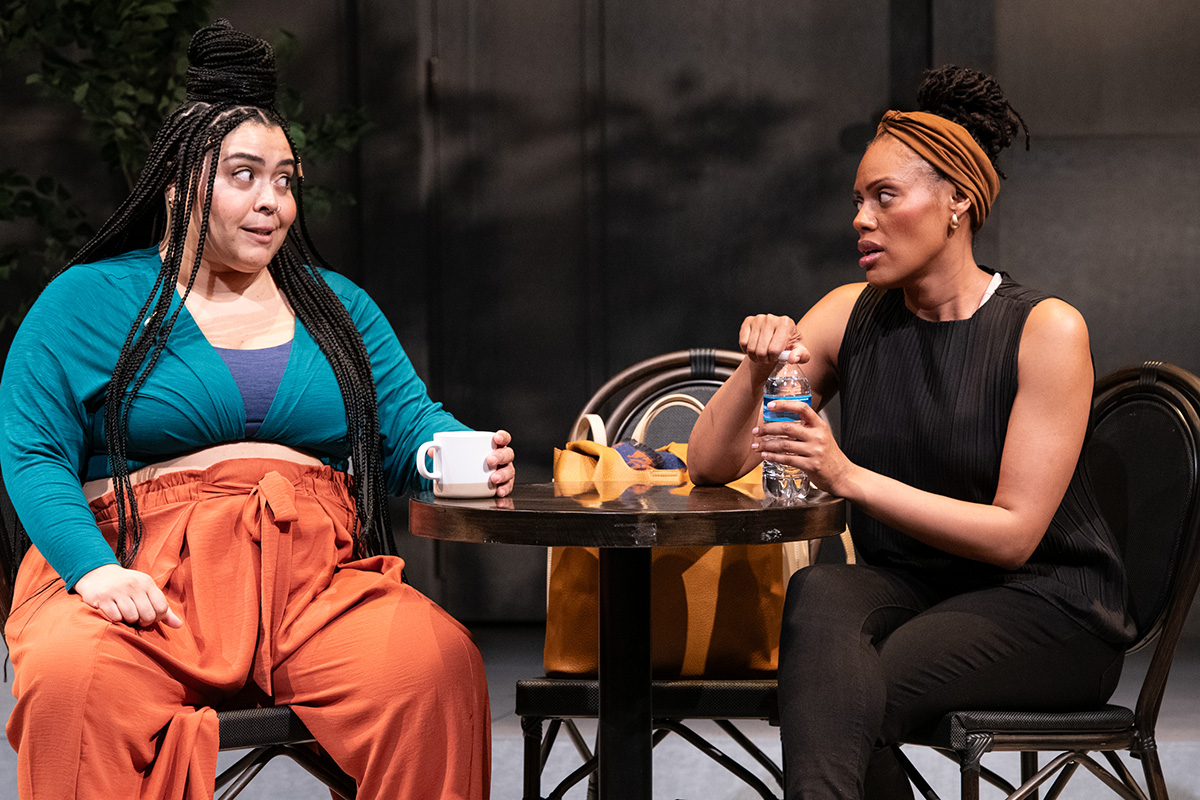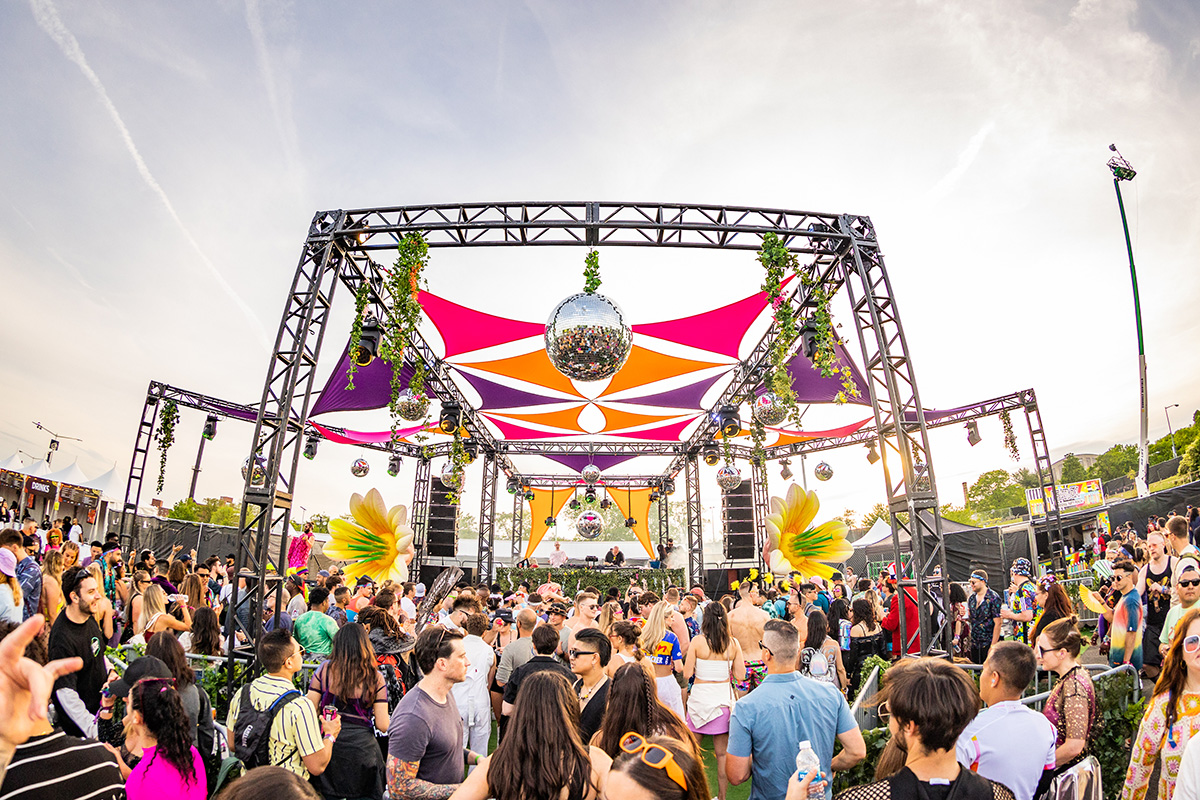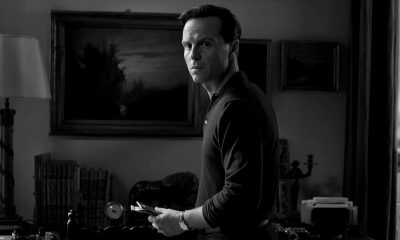Arts & Entertainment
Oscar nominations: The good, the bad and the predictable
Queer movies seemed like an afterthought in this year’s nominations

2023 was a very queer year at the movies, but you might not be able to tell that from looking at the nominations for the 96th Annual Academy Awards (aka the Oscars), which were announced early on Tuesday morning at the Motion Picture Academy’s Samuel Goldwyn Theater in Beverly Hills, Calif.
It’s true there were a few significant nods included for queer actors and/or actors in queer roles, as well as for films which included queer characters or subject matter and/or the creatives behind them, and we don’t want to seem unappreciative of that progress, even if we suspect it might be due to the Academy’s new guideline that a film must meet at least two out of four standards of representation and inclusion to qualify for nomination, implemented this year for the first time; even so, it’s hard not to feel a bit like an afterthought when so many queer movies, performers and creators that stood out among the year’s crop of releases — many of which scored recognition from multiple other awards bodies — have been left out of the lineup.
Indeed, it can almost be said that this year’s Oscar ballot is more notable for its snubs than for its inclusions, and that doesn’t just apply to the LGBTQ community.
The most egregious omission, in fact, is also the most predictable: The failure of Academy voters to nominate Greta Gerwig as Best Director for her industry-shaking efforts at the helm of “Barbie,” a film which managed to jump start the big screen’s box office by bringing audiences back to theaters in droves and sent more shock waves resonating through our culture than all the year’s other movies combined.
Though the movie — which earned eight nominations in total, including acting nods for supporting players Ryan Gosling and America Ferrera — made the cut for Best Picture, and Gerwig was nominated in the Best Adapted Screenplay category (alongside partner and now-husband Noah Baumbach), her name is glaringly absent from the list of contenders.
Add to this the equally perplexing snub of Margot Robbie — who was also an executive producer of the film — as Best Leading Actress, and it’s difficult not to see an unspoken reprimand being delivered to two strong women for daring to shake up the industry’s status quo by building a blockbuster movie hit around an unapologetically feminist core.
Still, with its eight nods, “Barbie” — which topped our list of the Best Queer-centric Films of 2023 — made a strong showing, though other of the year’s biggest titles received more. “Oppenheimer,” Christopher Nolan’s existential epic about the creator of the atomic bomb, unsurprisingly led the pack with 13, followed by Yorgos Lanthimos’ “Poor Things” with 11 and Martin Scorsese’s “Killers of the Flower Moon” with 10. Each of these four films are competing as Best Picture — and all have a strong chance at the trophy, though “Oppenheimer” is shaping up to be a sweeping juggernaut for the season.
Also nominated in the category are Bradley Cooper’s Bernstein biopic “Maestro” and Cord Jefferson’s late-season under-the-radar satire “American Fiction,” both of which include significant queer narratives in their storylines.
Expanding on the “good news” from the Oscars announcement, the Best Actor category includes a nomination for out gay actor Colman Domingo for his star turn as the titular out gay civil rights hero in “Rustin,” as well as for Cooper’s performance as the bisexual Bernstein in “Maestro.” The rest of the field is made up of Cillian Murphy (“Oppenheimer”), Paul Giamatti (“The Holdovers”) and Jeffrey Wright (“American Fiction”).
Notably absent from the race is out Irish actor Andrew Scott, who was considered a strong front runner for his leading turn in out British filmmaker Andrew Haigh’s “All of Us Strangers.”
For Best Leading Actress, a nomination went to queer ally Annette Benning for playing the title role in “Nyad,” as well as to Carey Mulligan for her portrayal of Bernstein’s loyal wife in “Maestro.”
Additionally, Lily Gladstone made history by becoming the first Indigenous American to be nominated in the category for “Killers of the Flower Moon,” though she has stated in interviews that she identifies as “middle-gender.”
Rounding out the race are Sandra Hüller (“Anatomy of a Fall”) and Emma Stone (“Poor Things”); at this point, it’s probably too early to predict the winners — there are a lot of politics involved in the final stretch before the big night — but, in this category, it’s hard to imagine anyone but Stone taking the prize.
In the supporting categories, iconic out actress Jodie Foster scored for her role as the title character’s trainer and BFF in “Nyad,” and Danielle Brooks made the cut for her show-stealing performance in the queer-inclusive musical “The Color Purple”). Their competition comes from Ferrera, Emily Blunt (“Oppenheimer”) and Joyce Da’Vine Randolph (“The Holdovers”).
On the Supporting Actor side, Sterling K. Brown was nominated for playing the lead character’s recently-out gay brother in “American Fiction,” while Gosling’s masculinity-skewing performance was “Kenough” to score him a nod for “Barbie.”
The other contenders are Robert DeNiro (“Killers of the Flower Moon”), Robert Downey, Jr. (“Oppenheimer”), and Mark Ruffalo (“Poor Thiings”); look to Downey as the probable winner, but Ruffalo’s against-type turn could pull off an upset.
It would be easy to go down the list and point out all the films and people that were unexpectedly passed over for this finals round in Hollywood’s Awards Sweepstakes — the most obvious, apart from Gerwig and Robbie, are Leonardo DiCaprio’s lead performance in “Killers of the Flower Moon”), but we can’t avoid mentioning the shutout of overtly queer standout movies like “All of Us Strangers” or “Saltburn” (from filmmaker Emerald Fennell, also part of the cadre of female power players behind “Barbie”), which failed to score nods in any category despite multiple nominations and wins from other awards bodies.
Yet, looking to the positive, despite the disappointment of so many surprise omissions, there are some strong steps forward represented for the queer community in this year’s nominations, with both Domingo and Foster standing within reach of becoming the first openly queer actor to win an Oscar for playing an openly queer character.
As noted above, Gladstone could also become the first Indigenous American to win a Leading Actress trophy, and though it wouldn’t be a first, a win for either “Maestro” or “American Fiction” would add another film with strong queer storylines to the list of Oscar’s Best Pictures.
Another milestone worth mentioning: with his nomination as Best Director for “Killers of the Flower Moon,” Martin Scorcese has become the living filmmaker with the most Oscar nominations (10) and second only to William Wyler (12) for the most of all time.
That may not be a “queer” record, but it’s definitely a cool one.
For a complete list of the nominations, visit the Oscar website.
Theater
Round House explores serious issues related to privilege
‘A Jumping-Off Point’ is absorbing, timely, and funny

‘A Jumping-Off Point’
Through May 5
Round House Theatre
4545 East-West Highway, Bethesda, Md.
$46-$83
Roundhousetheatre.org
In Inda Craig-Galván’s new play “A Jumping-Off Point,” protagonist Leslie Wallace, a rising Black dramatist, believes strongly in writing about what you know. Clearly, Craig-Galván, a real-life successful Black playwright and television writer, adheres to the same maxim. Whether further details from the play are drawn from her life, is up for speculation.
Absorbing, timely, and often funny, the current Round House Theatre offering explores some serious issues surrounding privilege and who gets to write about what. Nimbly staged and acted by a pitch perfect cast, the play moves swiftly across what feels like familiar territory without being the least bit predictable.
After a tense wait, Leslie (Nikkole Salter) learns she’s been hired to be showrunner and head writer for a new HBO MAX prestige series. What ought to be a heady time for the ambitious young woman quickly goes sour when a white man bearing accusations shows up at her door.
The uninvited visitor is Andrew (Danny Gavigan), a fellow student from Leslie’s graduate playwriting program. The pair were never friends. In fact, he pressed all of her buttons without even trying. She views him as a lazy, advantaged guy destined to fail up, and finds his choosing to dramatize the African American Mississippi Delta experience especially annoying.
Since grad school, Leslie has had a play successfully produced in New York and now she’s on the cusp of making it big in Los Angeles while Andrew is bagging groceries at Ralph’s. (In fact, we’ll discover that he’s a held a series of wide-ranging temporary jobs, picking up a lot of information from each, a habit that will serve him later on, but I digress.)
Their conversation is awkward as Andrew’s demeanor shifts back and forth from stiltedly polite to borderline threatening. Eventually, he makes his point: Andrew claims that Leslie’s current success is entirely built on her having plagiarized his script.
This increasingly uncomfortable set-to is interrupted by Leslie’s wisecracking best friend and roommate Miriam who has a knack for making things worse before making them better. Deliciously played by Cristina Pitter (whose program bio describes them as “a queer multi-spirit Afro-indigenous artist, abolitionist, and alchemist”), Miriam is the perfect third character in Craig-Galván’s deftly balanced three-hander.
Cast members’ performances are layered. Salter’s Leslie is all charm, practicality, and controlled ambition, and Gavigan’s Andrew is an organic amalgam of vulnerable, goofy, and menacing. He’s terrific.
The 90-minute dramedy isn’t without some improbable narrative turns, but fortunately they lead to some interesting places where provoking questions are representation, entitlement, what constitutes plagiarism, etc. It’s all discussion-worthy topics, here pleasingly tempered with humor.
New York-based director Jade King Carroll skillfully helms the production. Scenes transition smoothly in large part due to a top-notch design team. Scenic designer Meghan Raham’s revolving set seamlessly goes from Leslie’s attractive apartment to smart cafes to an HBO writers’ room with the requisite long table and essential white board. Adding to the graceful storytelling are sound and lighting design by Michael Keck and Amith Chandrashaker, respectively.
The passage of time and circumstances are perceptively reflected in costume designer Moyenda Kulemeka’s sartorial choices: heels rise higher, baseball caps are doffed and jackets donned.
“A Jumping-Off Point” is the centerpiece of the third National Capital New Play Festival, an annual event celebrating new work by some of the country’s leading playwrights and newer voices.
Nightlife
Ed Bailey brings Secret Garden to Project GLOW festival
An LGBTQ-inclusive dance space at RFK this weekend

When does a garden GLOW? When it’s run by famed local gay DJ Ed Bailey.
This weekend, music festival Project GLOW at RFK Festival Grounds will feature Bailey’s brainchild the Secret Garden, a unique space just for the LGBTQ community that he launched in 2023.
While Project GLOW, running April 27-28, is a stage for massive electronic DJ sets in a large outdoor space, Secret Garden is more intimate, though no less adrenaline-forward. He’s bringing the nightclub to the festival. The garden is a dance area that complements the larger stages, but also stands on its own as a draw for festival-goers. Its focus is on DJs that have a presence and following in the LGBTQ audience world.
“The Secret Garden is a showcase for what LGBTQ nightlife, and nightclubs in general, are all about,” he says. “True club DJs playing club music for people that want to dance in a fun environment that is high energy and low stress. It’s the cool party inside the bigger party.”
Project GLOW launched in 2022. Bailey connected with the operators after the first event, and they discussed Bailey curating his own space for 2023. “They were very clear that they wanted me to lean into the vibrant LGBTQ nightlife of D.C. and allow that community to be very visibly a part of this area.”
Last year, club icon Kevin Aviance headlined the Secret Garden. The GLOW festival organizers loved the its energy from last year, and so asked Bailey to bring it back again, with an entire year to plan.
This year, Bailey says, he is “bringing in more D.C. nightlife legends.” Among those are DJ Sedrick, “a DJ and entertainer legend. He was a pivotal part of Tracks nightclub and is such a dynamic force of entertainment,” says Bailey. “I am excited for a whole new audience to be able to experience his very special brand of DJing!”
Also, this year brings in Illustrious Blacks, a worldwide DJ duo with roots in D.C.; and “house music legends” DJs Derrick Carter and DJ Spen.
Bailey is focusing on D.C.’s local talent, with a lineup including Diyanna Monet, Strikestone!, Dvonne, Baronhawk Poitier, THABLACKGOD, Get Face, Franxx, Baby Weight, and Flower Factory DJs KS, Joann Fabrixx, and PWRPUFF.
Secret Garden also brings in performers who meld music with dance, theater, and audience interactions for a multi-sensory experience.
Bailey is an owner of Trade and Number Nine, and was previously an owner of Town Danceboutique. Over the last 35 years, Bailey owned and operated more than 10 bars and clubs in D.C. He has an impressive resume, too. Since starting in 1987, he’s DJ’d across the world for parties and nightclubs large and intimate. He says that he opened “in concert for Kylie Minogue, DJed with Junior Vasquez, played giant 10,000-person events, and small underground parties.” He’s also held residencies at clubs in Atlanta, Miami, and here in D.C. at Tracks, Nation, and Town.
With Secret Garden, Bailey and GLOW aim to bring queer performers into the space not just for LGBTQ audiences, but for the entire music community to meet, learn about, and enjoy. While they might enjoy fandom among queer nightlife, this Garden is a platform for them to meet the entirety of GLOW festival goers.
Weekend-long Project GLOW brings in headliners and artists from EDM and electronic music, with big names like ILLENIUM, Zedd, and Rezz. In all, more than 50 artists will take the three stages at the third edition of Project GLOW, presented by Insomniac (Electric Daisy Carnival) and Club Glow (Echostage, Soundcheck).
Out & About
Washington Improv Theatre hosts ‘The Queeries’
Event to celebrate queer DMV talent and pop culture camp

The Washington Improv Theatre, along with the Mayor’s Office of LGBTQ Affairs and the Gay Men’s Chorus of Washington DC, will team up to host “The Queeries!” on Friday, April 26 at 9:30 p.m. at Studio Theatre.
The event will celebrate Queer DMV talent and pop culture camp. With a mixture of audience-submitted nominations and blatantly undemocratically declared winners, “The Queeries!” mimics LGBTQ life itself: unfair, but far more fun than the alternative.
The event will be co-hosted by Birdie and Butchie, who have invited some of their favorite bent winos, D.C. “D-listers,” former Senate staffers, and other stars to sashay down the lavender carpet for the selfie-strewn party of the year.
Tickets are just $15 and can be purchased on WITV’s website.
-

 State Department4 days ago
State Department4 days agoState Department releases annual human rights report
-

 South America2 days ago
South America2 days agoArgentina government dismisses transgender public sector employees
-

 District of Columbia2 days ago
District of Columbia2 days agoCatching up with the asexuals and aromantics of D.C.
-

 Politics4 days ago
Politics4 days agoSmithsonian staff concerned about future of LGBTQ programming amid GOP scrutiny












